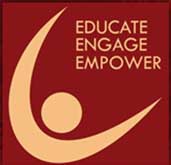Civil Unrest to Civic Engagement: 30 Years Later
April 29, 1992 marked a shift in the civic engagement landscape. The South LA civil unrest that erupted on that date manifested the distress and dissatisfaction of a community that had seen countless incidents of injustice over decades and the desperation for change. The events of the 1992 unrest clearly indicated that people needed more: more engagement, more opportunities to enact change, more opportunities to be heard.
Enter then-Councilman Mark Ridley-Thomas, who was newly minted in his elected role and understood the need for discourse among constituents and their elected representatives and the experiment known as the Empowerment Congress was born. Over the past 30 years, the Empowerment Congress has demonstrated sustained growth and evolution, consistently responding to the needs of the changing community. The work and focus of the organization has shifted over time through different jurisdictions – City to State to County – but the impact of the Empowerment Congress has remained steady through the changes.
Most accurately described as an ongoing experiment, the Empowerment Congress is a distinctive and deliberate national model of civic engagement built on the core principles of participatory democracy, reciprocal accountability, and intentional civility. This dynamic partnership among neighborhood groups, residents, nonprofit organizations, businesses, religious institutions, and community leaders within diverse communities has impacted sustainable change to improve quality of life in neighborhoods in tangible ways.
Now, 30 years later, this civic engagement experiment is moving forward into a new chapter and a new vision, but with the same mission – to educate, engage, and empower the community to advocate for the lives they deserve. Reflect with us on the past 30 years and continue this journey with us as we explore new ways to take on the charge to uplift, revitalize, and reinvigorate our communities.
25 Years After Civil Unrest

